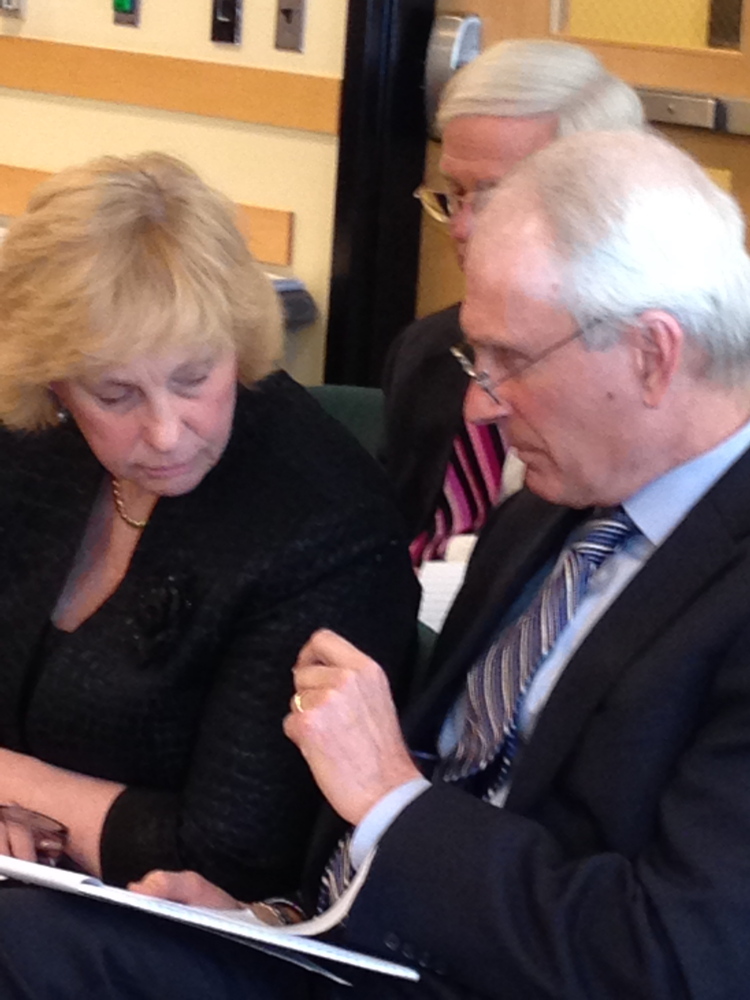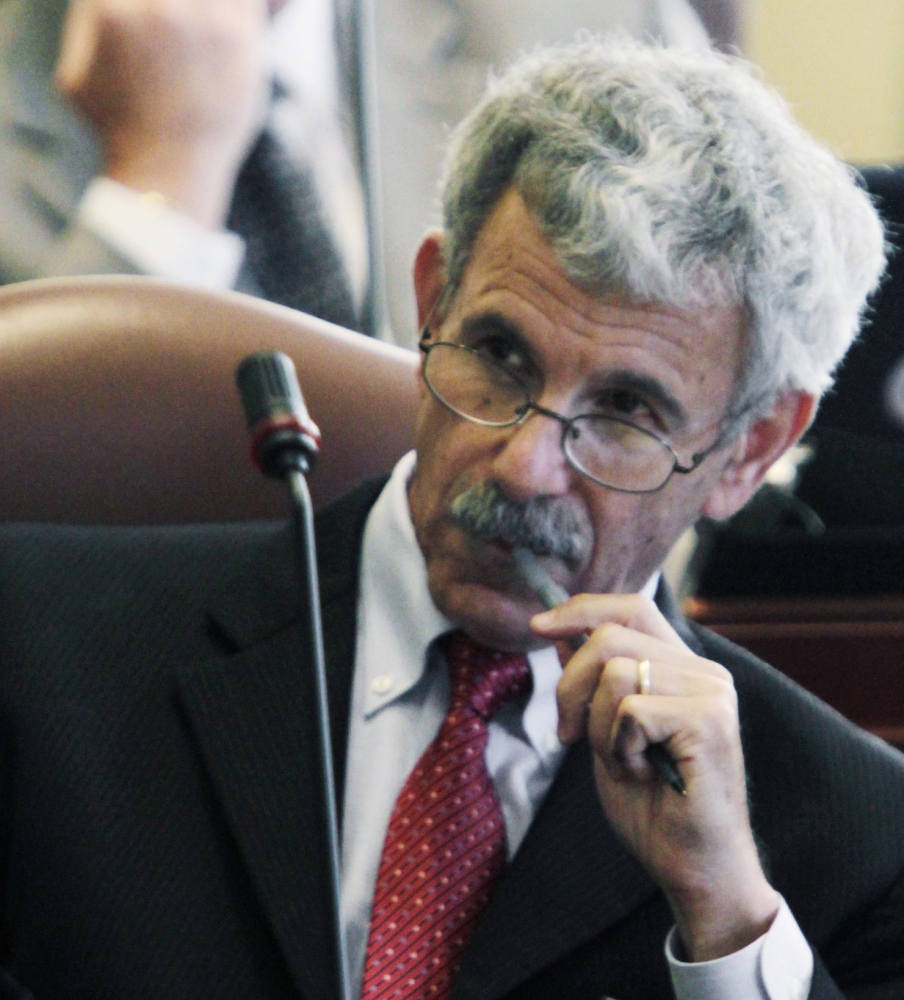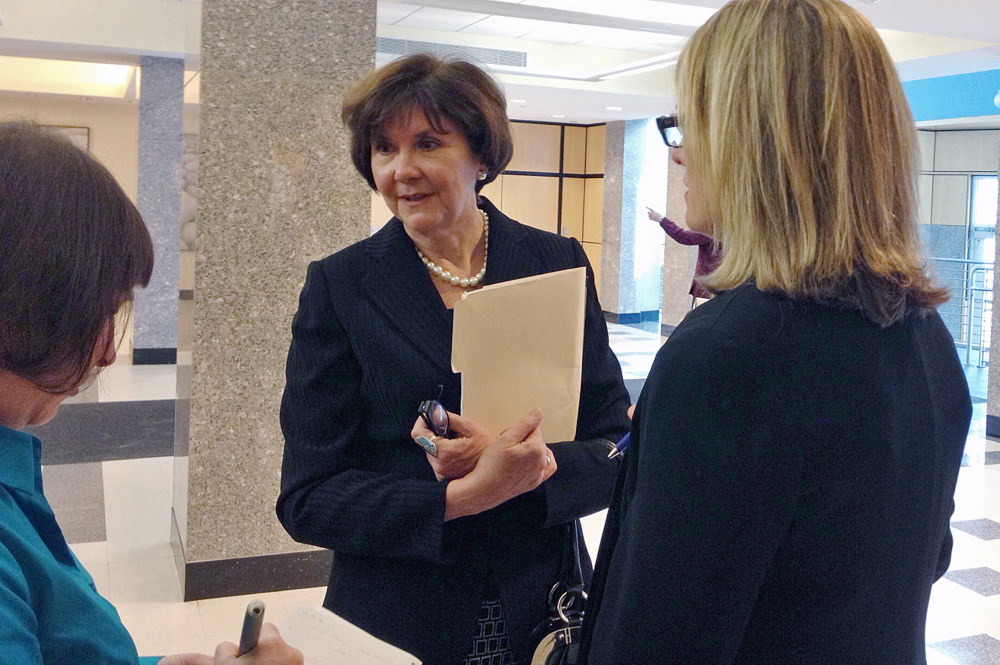AUGUSTA — A legislative committee voted unanimously Wednesday to refer sworn testimony detailing document shredding in the Maine Center for Disease Control and Prevention to the Attorney General’s Office.
The vote followed a meeting at which the Government Oversight Committee’s top Republican slammed CDC officials for rigging a competitive $4.7 million public-grant process and ordering the destruction of related documents.
The pending letter to the attorney general will stop short of saying the committee has determined that CDC officials willfully obstructed or violated Maine’s Freedom of Access Act. Such a finding could have encouraged additional inquiry and criminal charges by the Attorney General’s Office.
Committee members had heard conflicting testimony from CDC officials and could not reach a consensus on whether those officials knew they were breaking the law, or the documents were destroyed because of poor record retention policies.
The measured step by the committee contrasted with comments by Sen. Roger Katz, the panel’s ranking Republican. Katz said he believes that CDC officials altered the grant process, then covered the tracks by destroying old documents showing application scoring.
Several Democrats said they agreed with Katz, but other Republicans did not, and the panel appeared more intent on preventing future controversies than pursuing discipline or deepening its probe to pinpoint wrongdoing.
The Attorney General’s Office has already indicated that prosecuting the deliberate destruction of public documents would be difficult because of vagaries in the Freedom of Access Act, which governs the retention of public records and requires state officials to make them available for inspection.
The oversight committee has conducted a lengthy review of the controversy that involves CDC Director Sheila Pinette and high-level staff members. At a hearing in March, several officials gave conflicting testimony as they tried to explain who ordered the document destruction and whether senior officials knew those actions violated the public records law.
The oversight committee is considering legislation and new rules to address record retention policies, the way state agencies award public money, and avenues for state employees to express ethical concerns about perceived political influence or pressure by supervisors.
Those issues are at the center of the CDC controversy, which has unfolded since 2012 and is part of a federal whistleblower lawsuit filed by Sharon Leahy-Lind, a former director of the agency’s Division of Local Public Health.
Leahy-Lind claims in her lawsuit that her supervisor, Deputy Director Christine Zukas, told her to shred documents related to the competitive awards to health outreach nonprofits in the Healthy Maine Partnerships program.
Leahy-Lind claims that she was harassed and discriminated against for not complying with the directive. Her allegations first surfaced last year in a complaint to the Maine Human Rights Commission.
In 2012, the Sun Journal of Lewiston, responding to public officials’ complaints that the scores that determined which organizations got state funding had been altered, filed a public records request for the original scoring documents.
Leahy-Lind told lawmakers in March that the order to destroy documents stemmed from the newspaper’s request. Zukas and other officials testified that the destruction order was “version control,” not a deliberate attempt to violate or impede the Freedom of Access Act.
But Sen. Katz said officials inserted “subjective” scoring criteria to alter the final grant awards.
“What happened next can only be described as a cover-up,” he said, calling the controversy a “sad episode” that undermined public trust in state government.
Rep. David Cotta, R-China, disagreed and cautioned Katz against making loaded allegations. Cotta said he believes the document destruction was part of a “system failure” that did not properly outline record retention procedures.
“It’s convenient to sit here and be a Monday morning quarterback,” he said. “But we don’t want to sit here and accuse anyone of deliberate criminal activity.”
Any such determination may be made by the Attorney General’s Office, which has been reviewing the CDC matter for nearly a year.
Linda Pistner, the chief deputy attorney general, told the oversight committee earlier this year that proving any intentional destruction of public documents is difficult because of gray areas in the Freedom of Access Act.
The Attorney General’s Office has since suggested forming a task force to develop better guidelines for record retention, model policies for state agencies, training requirements for supervisors, and accountability systems. Members of the Government Oversight Committee indicated Wednesday that they are willing to accept the recommendations.
Meanwhile, the panel is considering legislative changes to ensure that state agencies have protocols outlining a code of ethics for state employees who feel that they’re under pressure to commit unethical or illegal behavior.
Such potential changes stem from Leahy-Lind’s claim that her supervisors were unwilling to address her concerns that the order to destroy the grant documents was illegal.
Steve Mistler can be contacted at 791-6345 or at:
smistler@pressherald.com
Twitter: @stevemistler
Send questions/comments to the editors.





Comments are no longer available on this story